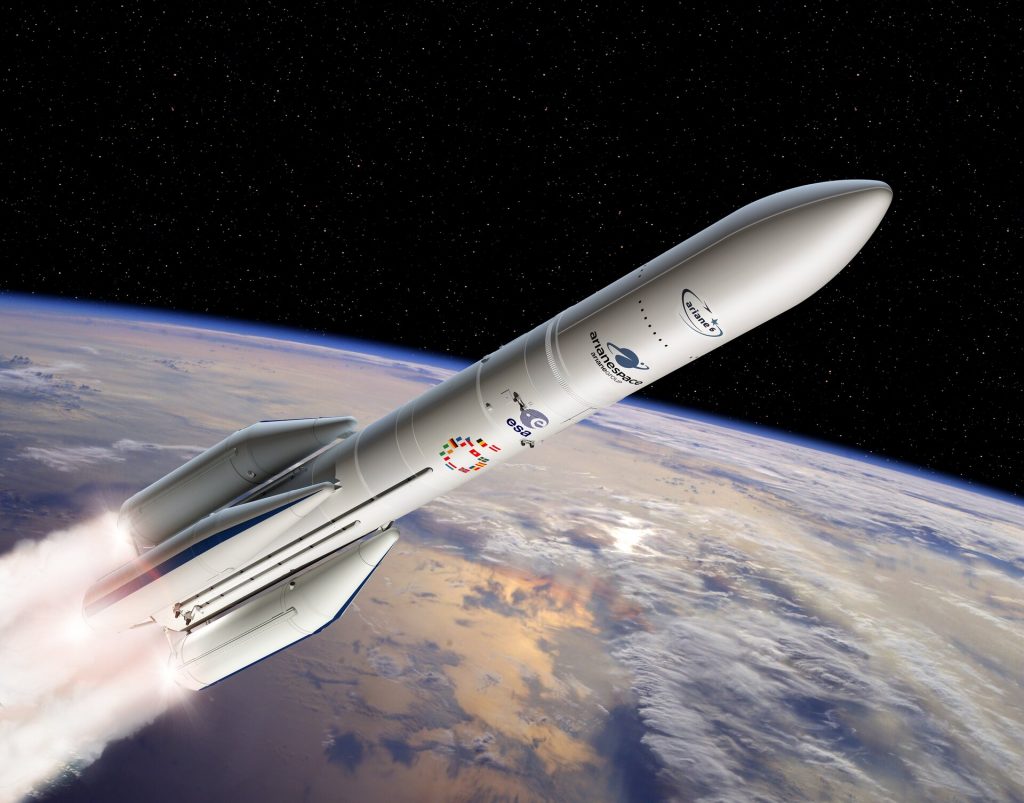Eumetsat explains Ariane 6 cancellation
July 11, 2024

At the end of June a European meterological service cancelled the order it had in place with Arianespace for the launch next year of its latest Eumetsat satellite (MTG-S1). Eumetsat will now be launched on a SpaceX rocket.
The decision caused consternation and much criticicm from the European Space Agency as well as Arianespace. Indeed, the decision of Eumetsat, Europe’s agency for monitoring weather, climate and the environment from space, to cancel the launch of its MTG-S1 satellite on the new European launcher Ariane 6 has triggered some harsh reactions and strong backlash.
In its latest Director’s Perspective, the European Space Policy Institute’s (ESPI) director, H. Ludwig Moeller, illustrates the complexities of decision making in European space programmes using the examples of Ariane 6 and Eumetsat’s decision regarding the launch of MTG-S1. He makes the case that the use of space and access to space strategically need to be treated as one.
ESPI explains its view, saying that at its June 26th Council meeting, its member state’s decided to cancel the launch contract for MTG-S1, which was scheduled for 2025 on the third flight of Ariane 6. The decision was taken just days prior to the A6 inaugural flight scheduled for July 9th 2024, triggering unusually strong reactions within the European space community. It may also have left the global space community wondering about Europe’s ability to define, act on, and implement a tangible, comprehensive and coherent (if not unified) space strategy. It comes moments before Europe seeks to resolve the European launcher crisis, [with the launch of the new Ariane 6].”
ESPI blamed “exceptional circumstances” although did not specifically itemise what they might have been.
ESPI added: “It sometimes appeared that space missions were perceived as something needed to fill up the order books of the launcher, and less so in their benefits and in their own needs. Yet, mission launch dates and lifetime are core requirements of any institutional programme (and commercial business plan). Their optimisation may translate into hundreds of millions of Euros of difference for a space programme or commercial revenues. At times this may be the equivalent of several billions euros in wider economic benefit.”
Other posts by Chris Forrester:
- Project Kuiper seeks India licence
- FAA suspends SpaceX launches
- SpaceX vs AST SpaceMobile
- AST SpaceMobile examines emergency call obligations
- AST SpaceMobile promises US commercial services
- Starlink “transformative” in shipping
- Rivada Networks funding explained
- EU satellites disrupted by Russia
- AST SpaceMobile CEO gives business update
